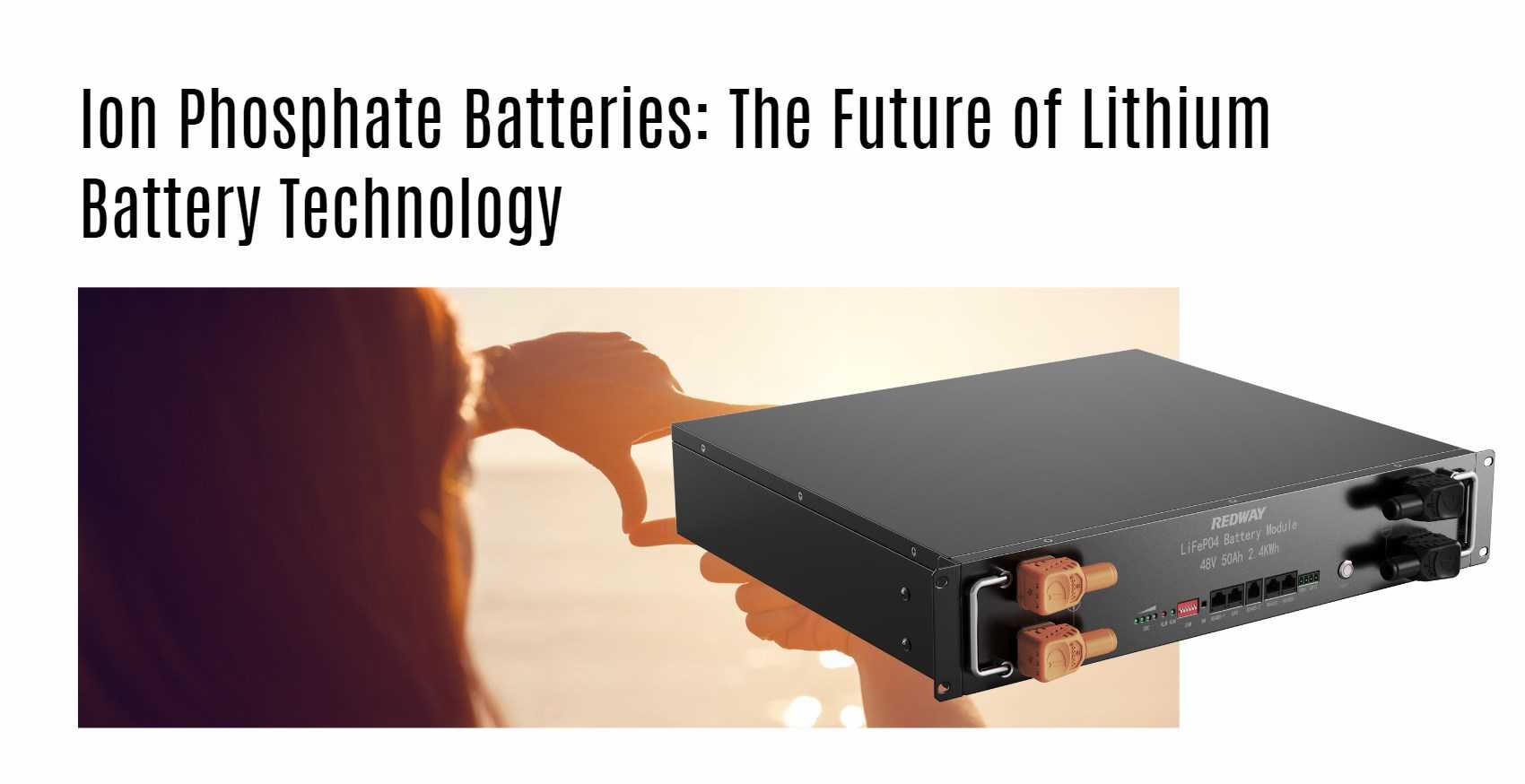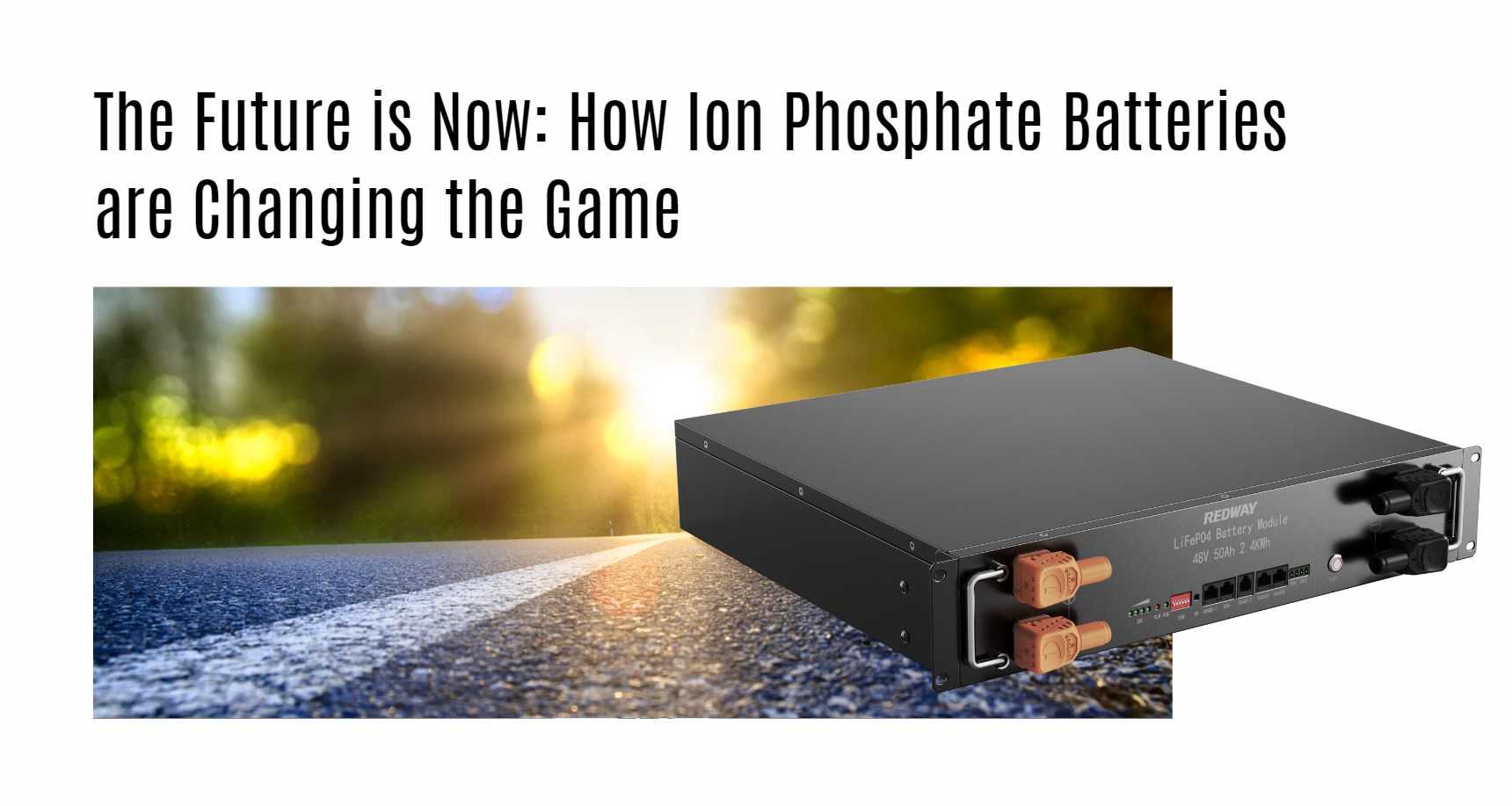The future is bright for ion phosphate batteries, as more and more companies shift towards this exciting new technology. With recent advances in battery research, it’s clear that lithium-ion batteries are being replaced by safer, more sustainable batteries that can power the world in the most eco-friendly way possible. Ion phosphate batteries are leading the charge in this shift to cleaner energy, and they’re quickly becoming the go-to choice for consumers and businesses alike. In this article, we’ll explore the benefits of ion phosphate batteries and why they’re the future of lithium battery technology.
Why Lithium is Outdated: The Benefits of Ion Phosphate Batteries
Ion phosphate batteries have numerous advantages over traditional lithium-ion batteries, making them a clear favorite in the world of energy storage. For starters, ion phosphate batteries are much safer than lithium-ion batteries. Lithium-ion batteries are known to explode or catch fire when they’re damaged or overheated. Ion phosphate batteries, on the other hand, are much more stable and have a much lower risk of overheating or catching fire. This makes them a much safer choice, especially for devices that are constantly in use, such as electric cars or smartphones.
Another benefit of ion phosphate batteries is that they have a longer lifespan than traditional lithium-ion batteries. Lithium-ion batteries tend to degrade over time, which can reduce their overall performance and lifespan. Ion phosphate batteries, on the other hand, are much more durable and can last for thousands of charge cycles. This not only makes them more cost-effective, but it also means that they’re better for the environment. With fewer batteries being produced and disposed of, the impact on the environment is significantly reduced.
Wholesale lithium golf cart batteries with 10-year life? Check here.
Sustainable and Dependable: The Future of Energy Storage
Ion phosphate batteries are also much more sustainable than traditional lithium-ion batteries. Lithium-ion batteries require a lot of resources to produce, including rare earth metals and other materials that are difficult to mine and refine. Ion phosphate batteries, on the other hand, are made from much more abundant materials, such as iron and phosphate. This makes them easier and more cost-effective to produce, while also reducing the environmental impact of the manufacturing process.
Finally, ion phosphate batteries are incredibly dependable, making them the perfect choice for businesses and individuals alike. With longer lifespans, increased safety, and a more sustainable manufacturing process, ion phosphate batteries are quickly becoming the go-to choice for a wide range of energy storage solutions. Whether you’re looking to power your home or your car, ion phosphate batteries are the reliable, eco-friendly choice.
Want OEM lithium forklift batteries at wholesale prices? Check here.
The Future is Now: How Ion Phosphate Batteries are Changing the Game
With all of these benefits, it’s clear that ion phosphate batteries are the future of lithium battery technology. They’re safer, more sustainable, and more cost-effective than traditional lithium-ion batteries, making them the ideal choice for a wide range of applications. From powering electric cars to keeping your smartphone charged all day, ion phosphate batteries are the dependable, eco-friendly choice for consumers and businesses alike. So if you’re looking for a reliable, sustainable energy storage solution, look no further than ion phosphate batteries. The future is here, and it’s brighter than ever before.
In conclusion, ion phosphate batteries are quickly becoming the go-to choice for energy storage solutions around the world. With their numerous benefits, including increased safety, longer lifespans, and a more sustainable manufacturing process, it’s clear that these batteries are the future of lithium battery technology. As we continue to shift towards cleaner, more sustainable energy sources, ion phosphate batteries will play a crucial role in powering our homes, businesses, and vehicles. So if you’re looking for a reliable, eco-friendly energy storage solution, look no further than ion phosphate batteries. The future is bright, and it’s powered by ion phosphate batteries.







